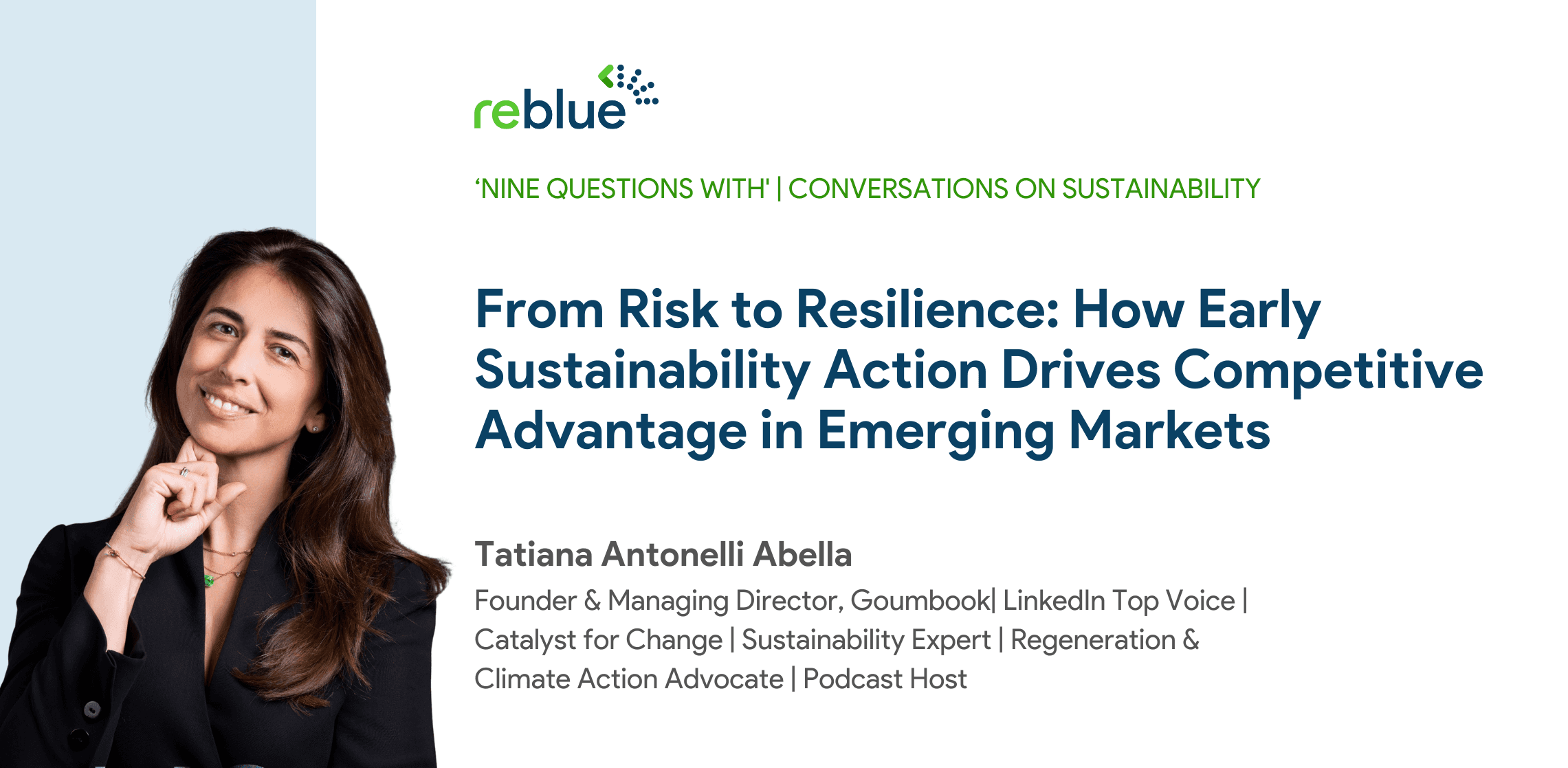Back to Blog
Share Post:


Learning from leaders: AI-Powered Analysis of Top Performers’ Sustainability Strategies
Discover how AI unveils the secrets behind top-performing companies’ sustainability strategies, turning complex data into actionable insights for a greener, smarter future.
Sustainability is now a key part of how businesses grow and succeed. But what sets leading companies apart in this area? With AI, we can explore their sustainability strategies faster and clearer. AI intelligence helps analyze what top companies do right, breaking down their environmental, social, and governance (ESG) efforts to show what works best.
It spots patterns we might miss and gives useful insights. Artificial intelligence can help companies learn from these top performers, improve their own sustainability and development plans, and make smarter choices for the future.
Benefits of AI-Powered Sustainability Analysis
Enhanced Data Accuracy and Insights
AI intelligence benefits sustainability analysis by improving the accuracy of the data and insights it provides. It can quickly handle large amounts of information, finding patterns or mistakes that might be overlooked. This gives businesses a clearer view of their environmental impact and helps them make better decisions.
With good data, effective and targeted actions can be taken. Artificial intelligence makes understanding sustainability easier, helping companies respond faster and more easily to make responsible choices that are good for both their environment and businesses.
Predictive Analytics for Future Trends
AI-powered sustainability analysis helps businesses plan ahead using predictive analytics. It reviews huge amounts of data to spot trends in resource use, environmental impacts, and market shifts.
This means better resource management and a clearer path to long-term growth for users. Instead of reacting to problems as they come, AI helps businesses plan, giving them the tools to stay competitive and adapt to changes. It’s a simple way to stay prepared and succeed in a fast-moving world.
Identification of Best Practices and Benchmarking
AI-powered sustainability analysis helps businesses find what works best in sustainability by looking at data from different companies. It identifies the most successful practices and shows where improvements can be made. This gives businesses a clear way to measure themselves against others and adopt better methods.
By learning from these insights, companies can improve their sustainability faster and more effectively. The strength to benchmark their effort helps them decrease waste and boost efficiency, benefitting both the environment and their operations.
Efficient Resource Management
AI-powered sustainability analysis greatly improves resource management. By analyzing data on resource use, AI can spot patterns and suggest ways to reduce waste. For instance, a company can track energy consumption and adjust usage based on real-time data, leading to lower bills and a smaller carbon footprint.
This allows businesses to make better decisions about using material, ensuring nothing goes to waste.
Identifying Top Performers in Sustainability
Finding companies leading in sustainability requires focusing on clear, unbiased measures like the Dow Jones Sustainability Index (DJSI) and the Carbon Disclosure Project (CDP). These ratings give an open, honest look at a company's environmental efforts, making it easier to identify those with genuine commitments to sustainability. Important factors to consider include reducing carbon emissions, conserving resources, and being transparent about their environmental practices.
By focusing on companies with strong DJSI and CDP ratings, you can trust that they aren’t just discussing sustainability—they’re actively working on it. These companies often use technology, including AI, to cut waste and improve efficiency, which boosts both environmental impact and long-term business success.
Supporting these top performers helps to reduce risk, drive innovation, and build a stronger reputation while making a meaningful difference for the planet.
AI-Powered Analysis of Sustainability Strategies
AI transforms how companies approach sustainability by providing clearer, data-driven insights into their environmental, social, and governance (ESG) practices. Rather than relying on guesswork or time-consuming manual analysis, AI quickly identifies what’s working and needs improvement. It does this by analyzing large data sets to reveal patterns and highlight key success factors.
AI’s ability to spot trends and predict outcomes is a game-changer for companies focused on sustainability and development. It helps businesses make smarter decisions about where to focus their efforts and how to better align with industry standards and customer expectations.
The real benefit for users is actionable information. AI enables them to streamline sustainability goals, reduce costs, and improve overall impact without the hassle of lengthy trial-and-error processes. It’s not just about having more data but about using it to make sustainability simpler, faster, and more effective.
Development
The intersection of AI and sustainability is unlocking exciting opportunities for businesses. As AI evolves, it’s driving new trends, particularly in improving resource efficiency and reducing environmental footprints. This innovation is reshaping corporate ESG (Environmental, Social, and Governance) strategies by offering powerful tools for tracking and reducing emissions, optimizing supply chains, and advancing clean energy solutions.
Incorporating AI into sustainability strategies allows companies to innovate and stay ahead while meeting ESG (Environmental, Social, and Governance) goals. It’s not just about protecting the environment—AI-driven solutions also help businesses grow responsibly, providing a competitive edge in a rapidly evolving market.
Conclusion
To wrap up, studying top performers’ sustainability strategies highlights what works best. AI plays a key role by quickly analyzing data and offering useful insights, making it easier to adopt impactful practices. However, the real driver of change is still the leadership and vision behind these strategies.
For businesses aiming to thrive long-term, leveraging AI offers a powerful tool for optimizing strategies. Still, it’s the human element—learning from the best—that ultimately leads to transformative, sustainable success.
Learning from leaders: AI-Powered Analysis of Top Performers’ Sustainability Strategies
Discover how AI unveils the secrets behind top-performing companies’ sustainability strategies, turning complex data into actionable insights for a greener, smarter future.
Sustainability is now a key part of how businesses grow and succeed. But what sets leading companies apart in this area? With AI, we can explore their sustainability strategies faster and clearer. AI intelligence helps analyze what top companies do right, breaking down their environmental, social, and governance (ESG) efforts to show what works best.
It spots patterns we might miss and gives useful insights. Artificial intelligence can help companies learn from these top performers, improve their own sustainability and development plans, and make smarter choices for the future.
Benefits of AI-Powered Sustainability Analysis
Enhanced Data Accuracy and Insights
AI intelligence benefits sustainability analysis by improving the accuracy of the data and insights it provides. It can quickly handle large amounts of information, finding patterns or mistakes that might be overlooked. This gives businesses a clearer view of their environmental impact and helps them make better decisions.
With good data, effective and targeted actions can be taken. Artificial intelligence makes understanding sustainability easier, helping companies respond faster and more easily to make responsible choices that are good for both their environment and businesses.
Predictive Analytics for Future Trends
AI-powered sustainability analysis helps businesses plan ahead using predictive analytics. It reviews huge amounts of data to spot trends in resource use, environmental impacts, and market shifts.
This means better resource management and a clearer path to long-term growth for users. Instead of reacting to problems as they come, AI helps businesses plan, giving them the tools to stay competitive and adapt to changes. It’s a simple way to stay prepared and succeed in a fast-moving world.
Identification of Best Practices and Benchmarking
AI-powered sustainability analysis helps businesses find what works best in sustainability by looking at data from different companies. It identifies the most successful practices and shows where improvements can be made. This gives businesses a clear way to measure themselves against others and adopt better methods.
By learning from these insights, companies can improve their sustainability faster and more effectively. The strength to benchmark their effort helps them decrease waste and boost efficiency, benefitting both the environment and their operations.
Efficient Resource Management
AI-powered sustainability analysis greatly improves resource management. By analyzing data on resource use, AI can spot patterns and suggest ways to reduce waste. For instance, a company can track energy consumption and adjust usage based on real-time data, leading to lower bills and a smaller carbon footprint.
This allows businesses to make better decisions about using material, ensuring nothing goes to waste.
Identifying Top Performers in Sustainability
Finding companies leading in sustainability requires focusing on clear, unbiased measures like the Dow Jones Sustainability Index (DJSI) and the Carbon Disclosure Project (CDP). These ratings give an open, honest look at a company's environmental efforts, making it easier to identify those with genuine commitments to sustainability. Important factors to consider include reducing carbon emissions, conserving resources, and being transparent about their environmental practices.
By focusing on companies with strong DJSI and CDP ratings, you can trust that they aren’t just discussing sustainability—they’re actively working on it. These companies often use technology, including AI, to cut waste and improve efficiency, which boosts both environmental impact and long-term business success.
Supporting these top performers helps to reduce risk, drive innovation, and build a stronger reputation while making a meaningful difference for the planet.
AI-Powered Analysis of Sustainability Strategies
AI transforms how companies approach sustainability by providing clearer, data-driven insights into their environmental, social, and governance (ESG) practices. Rather than relying on guesswork or time-consuming manual analysis, AI quickly identifies what’s working and needs improvement. It does this by analyzing large data sets to reveal patterns and highlight key success factors.
AI’s ability to spot trends and predict outcomes is a game-changer for companies focused on sustainability and development. It helps businesses make smarter decisions about where to focus their efforts and how to better align with industry standards and customer expectations.
The real benefit for users is actionable information. AI enables them to streamline sustainability goals, reduce costs, and improve overall impact without the hassle of lengthy trial-and-error processes. It’s not just about having more data but about using it to make sustainability simpler, faster, and more effective.
Development
The intersection of AI and sustainability is unlocking exciting opportunities for businesses. As AI evolves, it’s driving new trends, particularly in improving resource efficiency and reducing environmental footprints. This innovation is reshaping corporate ESG (Environmental, Social, and Governance) strategies by offering powerful tools for tracking and reducing emissions, optimizing supply chains, and advancing clean energy solutions.
Incorporating AI into sustainability strategies allows companies to innovate and stay ahead while meeting ESG (Environmental, Social, and Governance) goals. It’s not just about protecting the environment—AI-driven solutions also help businesses grow responsibly, providing a competitive edge in a rapidly evolving market.
Conclusion
To wrap up, studying top performers’ sustainability strategies highlights what works best. AI plays a key role by quickly analyzing data and offering useful insights, making it easier to adopt impactful practices. However, the real driver of change is still the leadership and vision behind these strategies.
For businesses aiming to thrive long-term, leveraging AI offers a powerful tool for optimizing strategies. Still, it’s the human element—learning from the best—that ultimately leads to transformative, sustainable success.
AI + Sustainability
Nov 18, 2024
Share Post:

Read More
Reblue Ventures
We aim to make sustainability simply smart business. Through research and partnerships, we develop pragmatic solutions that reveal the immense uncaptured value in sustainable operations.
Reblue Ventures
We aim to make sustainability simply smart business. Through research and partnerships, we develop pragmatic solutions that reveal the immense uncaptured value in sustainable operations.
Reblue Ventures
We aim to make sustainability simply smart business. Through research and partnerships, we develop pragmatic solutions that reveal the immense uncaptured value in sustainable operations.





